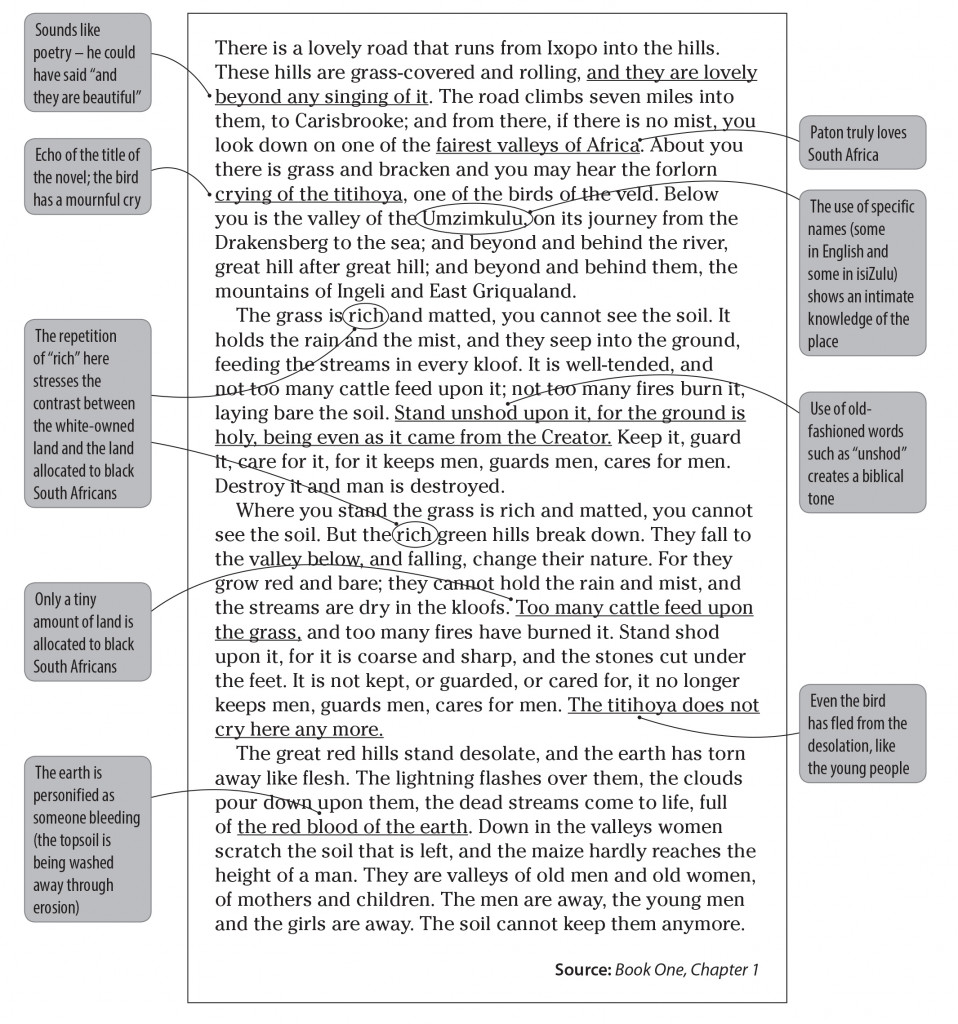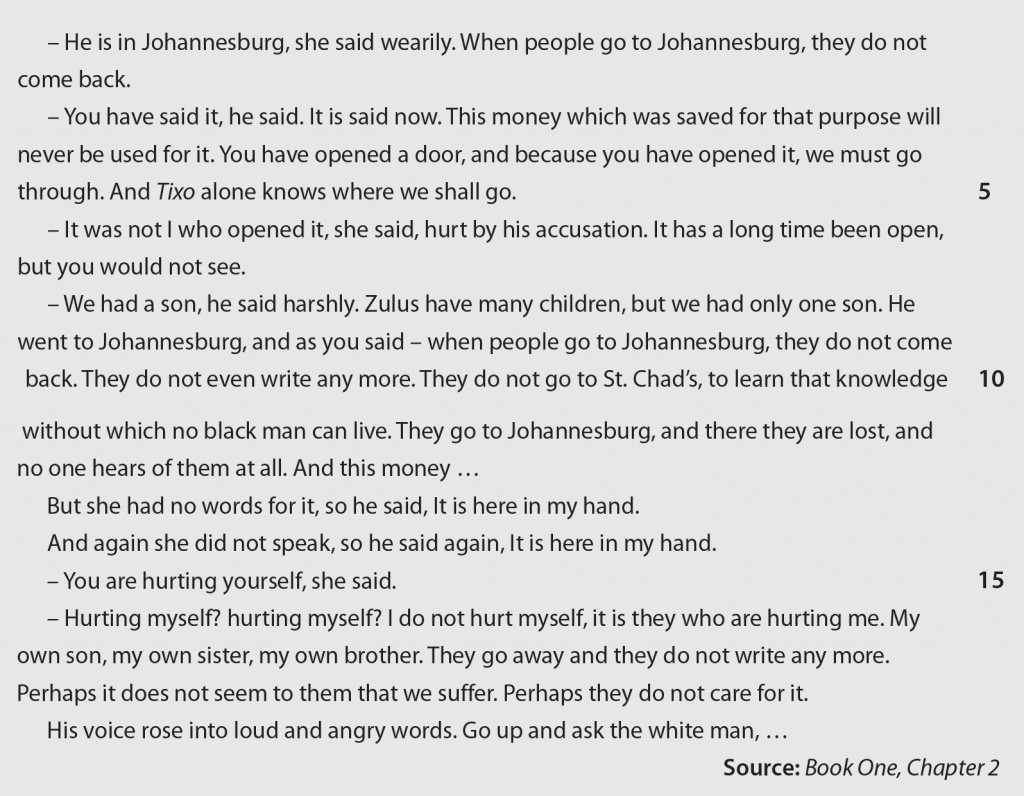Struggling with your prescribed literature?
Our Literature Study Guides provide insights and analysis of themes and characters and includes guidelines for writing your exam.
In order to analyse or discuss a novel, it is useful to divide the discussion into categories. These are: plot, background, structure, characters, setting, style, narrative voice and themes.
In this article we are going to focus on how to analyse an extract and answer contextual questions.
Here is an example of how to make notes for yourself when analysing an extract.

Extract from X-kit Achieve Literature Study Guide: Cry, the beloved country (9781928226581)
How to approach contextual questions
Practise answering contextual questions
Read the following extract before answering the sample questions.

Now answer the following questions. Remember to only look at the answers when you have written out your own answers.
1.1 Who is in Johannesburg? (1)
1.2 Why did the person named in question 1.1 leave Ndotsheni? (2)
1.3 Why do the people who “go to Johannesburg” not come back? Give TWO reasons, one about the city and one about Ndotsheni. (3)
1.4 Choose the correct answer. For what purpose had Kumalo saved the money?
a. To buy things for the church
b. To clothe his family
c. To educate his son (1)
1.5 What role does “Tixo” play in Kumalo’s life? (2)
1.6.1 Why is Kumalo angry with his wife for mentioning that people don’t come back? (1)
1.6.2 Kumalo says: “It is here in my hand.” What is his tone when he says this? Explain your answer. (2)
1.7 Why does Kumalo think that his family members should have written to him? (2)
1.8 Explain in your own words why Kumalo shouts that the answer lies with “the white man”? Think about your answer to 1.3 before you answer this question. (3)
Here are the answers to the sample questions so you can see how many you got right.
1.1 Absalom ✓ (1)
1.2 He went to find his aunt Gertrude ✓ who had not written home after going to Johannesburg to find her husband. ✓ (2)
1.3 The city is where the money is ✓ and life is modern and vibrant, so it is easy to forget the moral values of home and get lost in the ways of the city. ✓ Ndotsheni is quiet and life is hard because there are too many people and not enough land. ✓ (3)
1.4 C ✓ It was to send Absalom to St Chad’s so he could get a good education. (1)
1.5 Kumalo is a priest in the Anglican church. ✓ He is devout and turns to God for comfort when he is troubled. ✓ (2)
1.6.1 Kumalo has been hoping against hope that Absalom will come back and fulfil the dream his father has for him. ✓ (1)
1.6.2 He is sad and hurt. ✓ He has saved up the money for his son, but now has to accept that it can be used for other things because his son won’t go to school. ✓ (2)
1.7 Kumalo is the oldest brother and head of the family. ✓ He is also the priest and leader of the community so expects his family members to keep him informed of their lives. ✓ (2)
1.8 The “white man” historically has made the blacks live in areas too small to sustain them. ✓ They have led the industrialisation of Africa, especially with the mines in Johannesburg. ✓ The cities and the chance of jobs attract the young to leave home and not come back. ✓ (3)
Find more help in X-kit Achieve Literature Study Guide: Cry, the beloved country (9781928226581)
Looking for X-kit Achieve Literature Study Guide: Cry, the beloved country in eBook format, visit http://shop.pearson.co.za